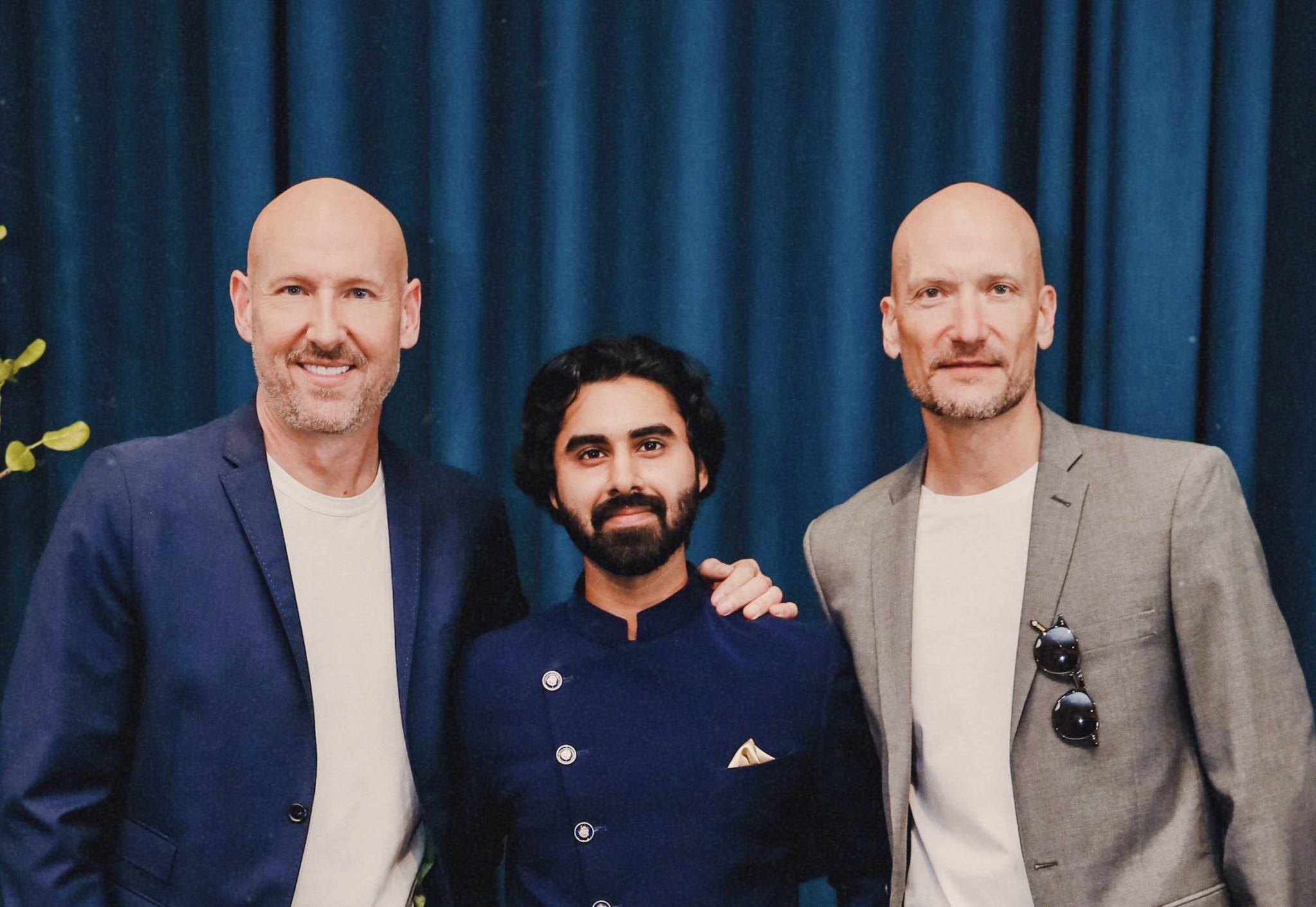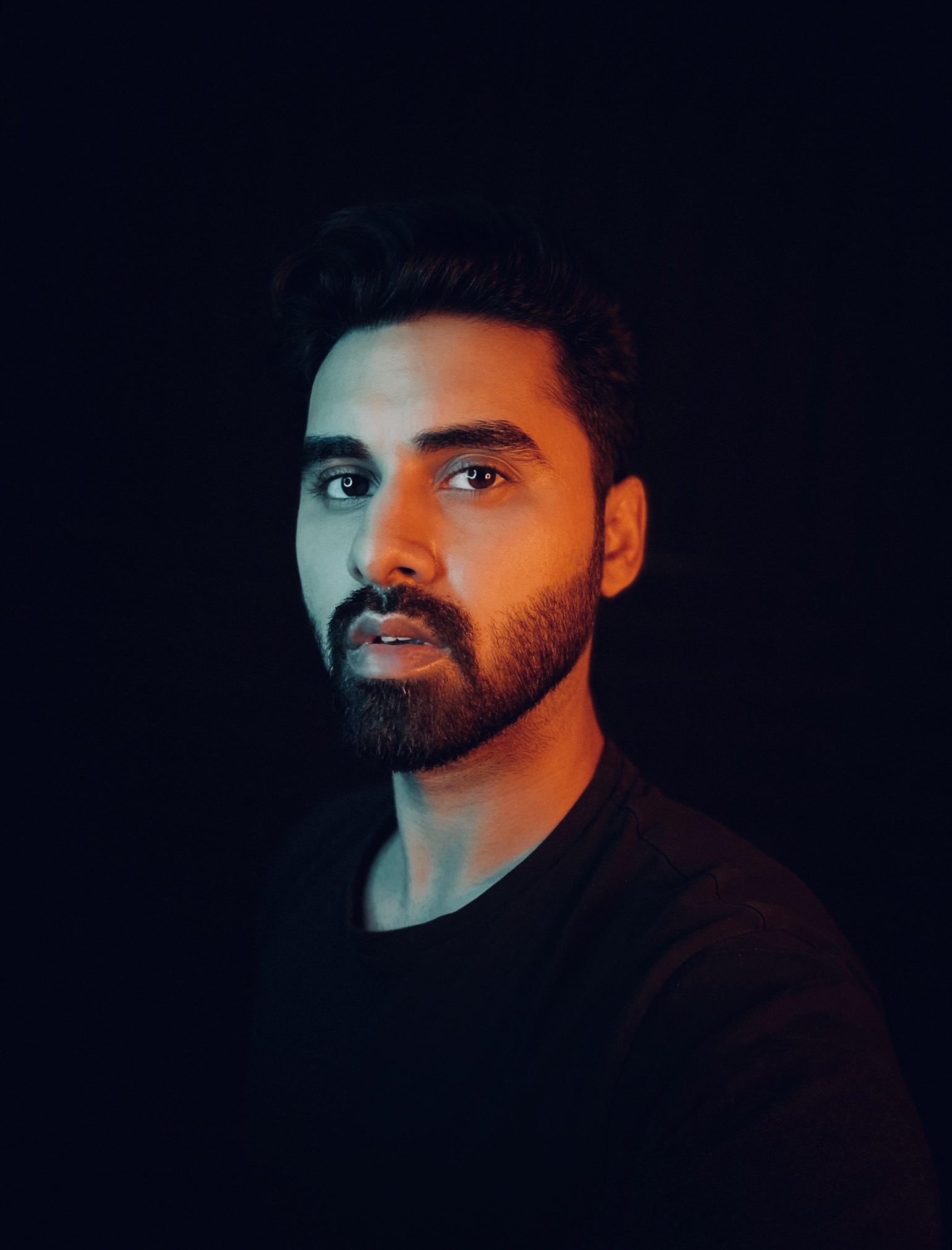We caught up with the brilliant and insightful Shaurya Kapoor a few weeks ago and have shared our conversation below.
Hi Shaurya, thanks for joining us today. Do you wish you had waited to pursue your creative career or do you wish you had started sooner?
I’ve been singing since I was 4, but growing up in Faridabad, India, without any musician friends around me or any professional musicians in my family or circle to look up to, I never really saw music as a viable career option. It was always something I loved deeply, but it didn’t seem realistic.
I decided to pursue music professionally at age 22, after I had completed my Bachelor’s in Electronics Engineering. During my undergrad, I was also working in events—doing multi-brand auto shows in collaboration with 30+ major car and bike companies across India. That experience gave me a sense of independence and self-belief. It was the first time I asked myself: If I could do anything with my life, without limitations, what would it be? And the answer was music.
So at 22, without any formal music education, without a music community, mentors, or even musician friends, I took a huge leap of faith. I started performing in and around Delhi, taught myself music theory, songwriting, and production, and self-released my first two songs in December 2019 and January 2020. Then COVID hit.
With live gigs and collaboration off the table, I pivoted to teaching online singing lessons. It was the only income I could rely on at the time, and I just kept going—making more music by myself, not knowing if I was even working toward anything anymore.
In 2022, I moved to Mumbai to explore the music industry there. By then, I had become pretty solid as a voice teacher, and that work allowed me to support myself financially. But very quickly, I realized something: after years of singing, and then learning contemporary pop songwriting and production, I had built a very specific skill set—but I couldn’t find a space to apply it in Mumbai, Faridabad, or Delhi.
I had always written and sung in English. My biggest influences were The Beatles, Led Zeppelin, Pink Floyd, John Mayer, Coldplay, Arctic Monkeys, Frank Ocean, Ryan Tedder, Jack Antonoff, Benny Blanco, Pharrell—the kind of music that didn’t really align with the references being used in Bollywood. I constantly felt like I didn’t belong. I believed in my sound, but no one else around me seemed to see its value, which made me question myself and sometimes feel a little crazy.
That’s when I made the decision to get out of India and move to a city with a more developed English-language music scene. I got into Berklee NYC for a Master’s in Songwriting and Production. I received two scholarships, worked on campus, and lived on a tight budget in New York City—but I was determined to make it work.
Towards the end of my time at Berklee, it became clear that LA was the next step. Over time, I had honed in on what I do best—vocal-centric pop music—and most of my professors and mentors agreed that LA was the best place for that sound.
Two months after moving to LA, I got the biggest sign from the universe: I was referred to apply for, and then accepted into, Stargate’s LAAMP mentorship program. (Stargate has produced for artists like Coldplay, Rihanna, Katy Perry, and Sam Smith.) At LAAMP, I met some of the most amazing friends and collaborators, and for the first time in a long time, I felt like I was exactly where I needed to be. I’m incredibly grateful.
Now, do I wonder what it would’ve been like if I had gotten into music at 15? Sure. Maybe I would’ve gone to Berklee for undergrad at 18 and moved to LA sooner. But then again, four years of music school might’ve made me want to try something else. One of the reasons I dove so deep into music was because I knew I didn’t want to do electronics engineering or event management anymore.
Would I have gotten into teaching if not for COVID? Probably not. And if I hadn’t gone through the voice teacher training program under Justin Stoney at New York Vocal Coaching, I doubt I would’ve become the kind of singer who could impress producers who’ve worked with Sam Smith and Ne-Yo.
And Berklee NYC only offers master’s programs—so if I hadn’t done my undergrad first, I wouldn’t have been eligible in the first place.
So yeah, I’ve thought about the “what ifs.” But all in all—I don’t know how a boy from Faridabad, with no family connection to music, ended up in front of John Mayer’s songwriting professor or in Stargate’s mentorship program. I mean, I know how it happened, but I don’t know if you can recreate that kind of magic. A lot had to happen exactly the way it did for me to end up where I am.
And looking back, I wouldn’t change a thing.


As always, we appreciate you sharing your insights and we’ve got a few more questions for you, but before we get to all of that can you take a minute to introduce yourself and give our readers some of your back background and context?
I’m a singer, songwriter, producer, and voice teacher currently based in Los Angeles. As a songwriter and producer, I work in the experimental pop / alt-pop space. Earlier this year, I released four original songs to showcase what I can offer as a writer-producer, and I have five more on the way under my artist project Cosimo Stone. There’s also a lot of unreleased material I’ve worked on with incredible artists, writers, and producers that I can’t wait for people to hear.
In addition to my work as an artist and producer, I offer vocal coaching, voice teaching, and vocal production services through my initiative and vocal studio, The Secret Vocal Sauce. I believe singing is a skill, and like any other skill, it can be improved with the right practice. I help singers answer key questions like what to practice, how to practice, and whento practice by creating singer-specific vocal workouts with backing tracks—essentially acting as a personal trainer for their voice.
I also support artists in the recording studio through vocal production—an area where I bring both formal training and extensive experience. I literally have a Master’s degree and advanced certifications in this field, which allows me to help artists deliver their best vocal performances in a recording setting.
I’m also excited to be starting a new role with Radio Zindagi, a digital and broadcast radio station for the Hindi-speaking population in New Jersey, The Bay(SF), and DC area, where I’ll be helping create audio content.
If there’s one thing I’d want people to know about my work, it’s that I bring both artistry and technical depth to everything I do—whether it’s writing a song, producing a track, or helping a vocalist unlock their full potential.


What do you think is the goal or mission that drives your creative journey?
At the core of my creative journey is a very personal mission: to create a life and career that I couldn’t find a reference for when I was growing up. One of the most difficult parts of choosing music as a profession was the absence of a clear, visible path—especially for someone like me, an Indian-born artist who writes and sings in English. Despite India’s massive population and the widespread use of English in education—particularly in urban centers—there are still no Indian-born artists in mainstream Western commercial music. That absence struck me as not only surprising, but deeply motivating.
In India, traditional career paths like engineering, medicine, and law are widely encouraged—primarily because they offer a clear structure and a sense of financial stability, which the middle class often prioritizes. In that context, when a teenager expresses the desire to pursue a creative path that no one around them fully understands—especially one with no precedent—it can be terrifying, both for them and for their families.
My goal is that in the next 3–5 years, if a 15-year-old in India dreams of becoming an artist, they’ll be able to point to someone like me and say, “It’s possible. There are people like me doing it.” That sense of visibility and representation is incredibly important to me. It’s also what keeps me going during the hardest moments—whether it’s struggling to afford groceries or facing rejection after rejection in a competitive and often unforgiving industry.
What drives me is the opportunity to build something that hasn’t existed before—to open a door that’s been closed for far too long.


Any resources you can share with us that might be helpful to other creatives?
If there’s one resource I wish I had understood the value of earlier, it’s people. Mentors, peers, collaborators—human connection is the most powerful resource in any creative journey. And the truth is, people are not as unreachable as we often think they are.
Opportunity rarely knocks on its own. It comes to those who ask for it, who fight for it, who are bold enough to believe they’re worth responding to. That voice in your head that says, “Why would XYZ ever reply to me? I’m a nobody”—that voice is lying. What I’ve learned is that so many people out there, especially those who have walked this path before, are open to helping simply because they remember what it felt like to be in your shoes—5, 10, 15 years ago.
The epitome of success, I believe, is being in a position to give back. And most truly successful people want to give back—if you give them a chance to. So reach out. Ask questions. Seek guidance. Do it without shame, without hesitation. Someone will respond. Someone will see you. But you have to give them the chance to.
3-time Grammy award winner Ricky Kej wrote me a recommendation to Berklee because I asked, and that changed my life.
Contact Info:
- Website: https://www.thesecretvocalsauce.com
- Instagram: https://www.instagram.com/cosimo_stone/?hl=en
- Linkedin: https://www.linkedin.com/in/shaurya-kapoor-b38633210/
- Other: https://linktr.ee/cosimostone




